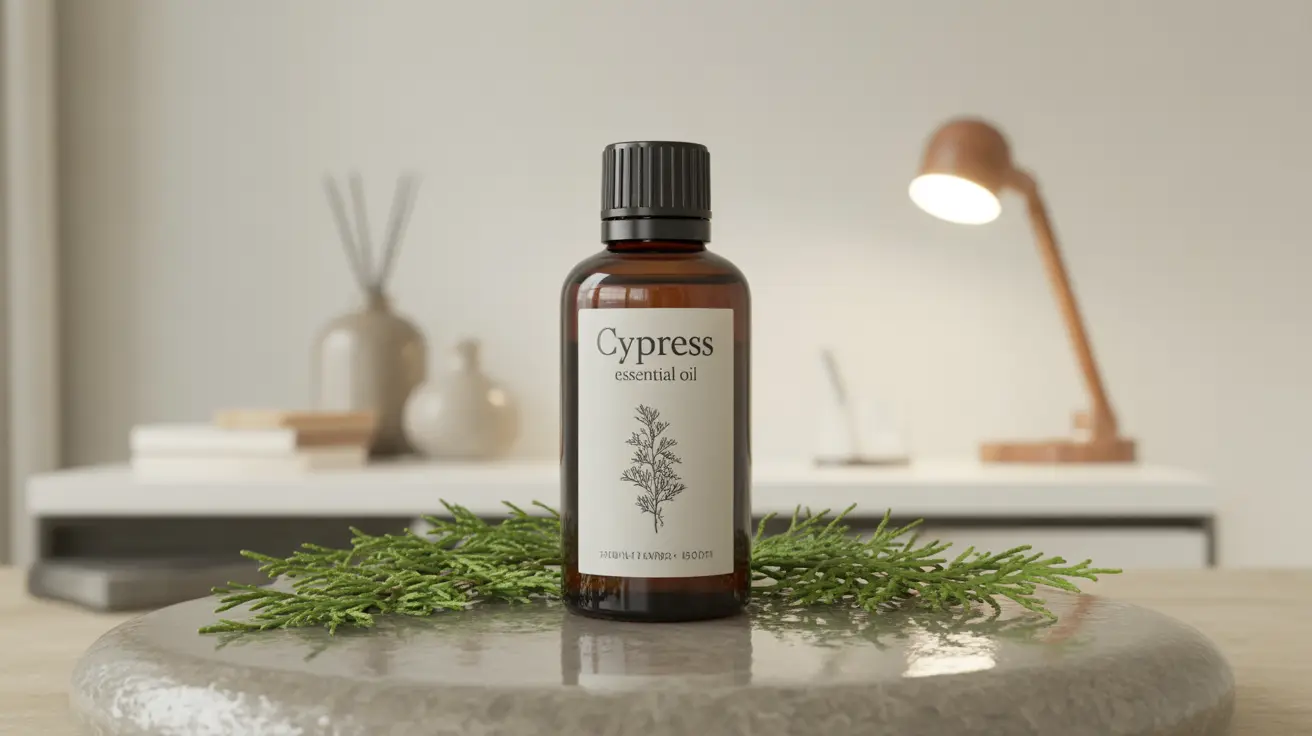Cypress essential oil, derived from the needles and twigs of the cypress tree, has emerged as a versatile natural remedy with numerous potential health benefits. This aromatic oil offers therapeutic properties that may help with various skin conditions, respiratory issues, and circulatory concerns. Understanding its proper use and applications can help you safely incorporate this powerful essential oil into your wellness routine.
Understanding Cypress Essential Oil
Cypress essential oil is extracted through steam distillation of the fresh leaves, stems, and twigs of the Cupressus sempervirens tree. This oil contains active compounds like alpha-pinene, carene, and limonene, which contribute to its therapeutic properties. Its fresh, clean, and slightly woody aroma makes it popular in both aromatherapy and topical applications.
Skin Health Benefits and Applications
When properly diluted, cypress essential oil can support various aspects of skin health. Its natural astringent properties may help tighten and tone the skin, while its antimicrobial characteristics can assist with minor skin irritations.
Acne Management
The oil's natural antibacterial properties make it potentially beneficial for acne-prone skin. When diluted properly with a carrier oil, it can help regulate excess oil production and support clearer skin.
Wound Healing Support
Cypress oil's antiseptic properties may aid in wound healing by keeping the affected area clean and promoting healthy tissue regeneration. However, always consult a healthcare provider before applying it to open wounds.
Respiratory Support and Benefits
The expectorant properties of cypress essential oil make it valuable for respiratory health. When used in aromatherapy, it may help clear congestion and support easier breathing.
Breathing Enhancement
Adding a few drops to a diffuser or steam inhalation can help:
- Clear nasal passages
- Reduce congestion
- Support respiratory comfort
- Promote deeper breathing
Circulation and Muscle Support
One of cypress essential oil's most notable benefits is its potential to improve circulation and provide relief from muscle-related discomfort.
Muscle Relief Applications
The oil's antispasmodic properties may help with:
- Muscle cramps and spasms
- Restless leg syndrome symptoms
- General muscle tension
- Post-exercise recovery
Safe Usage Guidelines
To ensure safe and effective use of cypress essential oil, always follow these essential guidelines:
- Dilute properly with a carrier oil (1-2% dilution for general use)
- Perform a patch test before full application
- Avoid use during pregnancy without professional guidance
- Keep away from eyes and mucous membranes
- Store in a cool, dark place away from direct sunlight
Frequently Asked Questions
What are the main health benefits of cypress essential oil for skin and respiratory issues? Cypress essential oil offers antimicrobial and astringent properties for skin health, while its expectorant qualities support respiratory function. It can help with skin tone, acne management, and breathing comfort when used properly.
How can cypress essential oil be safely used for wound healing and treating acne? Always dilute cypress oil with a carrier oil at a 1-2% concentration. For acne, apply the diluted mixture to affected areas after cleansing. For wound healing, ensure the wound is clean and consult a healthcare provider before application.
Does cypress essential oil help relieve muscle cramps, spasms, or conditions like restless leg syndrome? Yes, cypress oil's antispasmodic properties may help relieve muscle cramps and spasms. When diluted and massaged into affected areas, it can help reduce discomfort and support muscle relaxation.
Can cypress essential oil be used to reduce hemorrhoid swelling and improve circulation? Cypress oil's astringent and circulation-promoting properties may help reduce swelling and improve blood flow. However, consult a healthcare provider before using it for hemorrhoids or other sensitive conditions.
What precautions should I take when using cypress essential oil topically or in aromatherapy? Always dilute the oil properly, perform patch tests, avoid use during pregnancy without professional guidance, keep away from sensitive areas, and store properly. If irritation occurs, discontinue use immediately and seek medical attention if needed.




